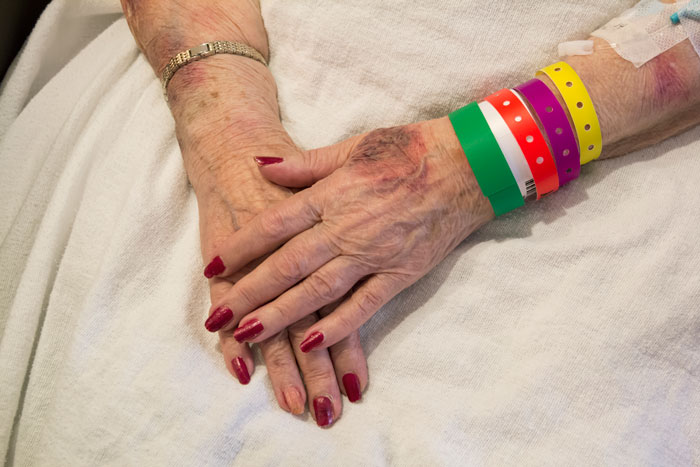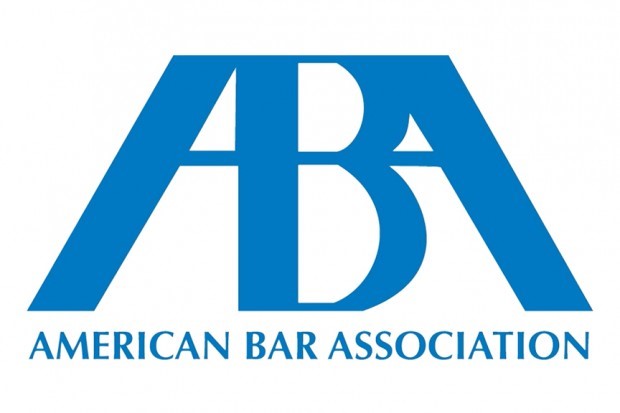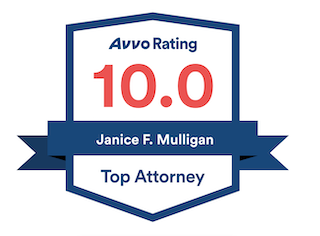Medical Malpractice versus Elder Abuse
So, what types of things may qualify as Elder Abuse?
Examples of cases involving conduct that was bad enough to warrant an award of enhanced remedies under the Elder Abuse Act include the following:
- A facility caring for a dependent adult with a known condition causing progressive dementia, requiring nutrition and hydration through a gastrostomy tube, and subjecting her to skin deterioration, ignored a medical care plan requiring the facility to check the dependent adult’s skin on a daily basis and failed to notify a physician when pressure ulcers and other skin lesions developed. (Sababin v. Sup. Ct. (2006) 144 Cal App. 4th)
- The staff of a nursing home failed to assist a 90 year old blind and demented woman with eating, used physical and chemical restraints to punish the elder and prevent her from obtaining help, and physically and emotionally abused the woman by bruising her, “withholding food and water, screaming at her, and threatening her.” (Benun v. Sup. Ct. (2004) 123 Cal. App. 4th 113, 116-117.)
- A 78 year old man admitted to a skilled nursing facility “was abused, beaten, unlawfully restrained, and denied medical treatment.” (Smith v. Ben Bennett Corp. (2005) 133 Cal. App. 4th 1507, 1512)
Other cases of wrongful death through neglect and certain events, like rape (a “never event”), or wandering away from the facility are clearly egregious things that should be reported and investigated.
What should you be on the lookout for?
Your loved one not getting enough hydration or nutrition.
Unusual bruising or a broken bone
Getting the wrong medication, or the wrong dosages of medication, or no medication
Nurses not providing care; Doctors not seeing the resident when needed
No one attending to the call lights, or taking inordinate time to answer
Burns or scratches
Odd dramatic weight loss
Sores on bottom, shoulders, elbows, back of head or heels that go untreated
Anxiety or strange behavior
Fear or discomfort around certain staff members
Not getting changed, lying in own urine or feces for long periods
Lack of bathing or changing clothes
Embarrassment or humiliation by derogatory statements from staff
Not allowing the resident to talk with family, keeping loved ones away
Why isn’t this just plain Medical Malpractice?
In many cases of elder abuse, a nursing home, physician, or other healthcare provider is involved. In those cases, it is important to understand the interplay between “MICRA” and the Elder Abuse Act. MICRA governs lawsuits for professional negligence against healthcare providers. Within the MICRA definition—found in Civil Code Section 3333.1(c)(1)—of healthcare providers are physicians, nursing homes, hospitals, pharmacies, dentists, or health facilities licensed pursuant to Health and Safety Code Sections 1440 and 1200, et seq. These same entities and individuals are frequently considered potential defendants under the Elder Abuse Act.[1] In addition, many of the acts that are considered professional negligence can also be considered neglect under the Elder Abuse Act.[2]
Case law now recognizes a distinction between injury that comes from giving healthcare services as opposed to from the duty to carry out custodial obligations (neglect). MICRA will not apply to cases in which the allegations are rooted in a failure to carry out duties that are “custodial” in nature and not professional. There is no cap on this damage and MICRA limits do not apply. Covenant Care v. Sup. Ct. (2004) 32 Cal. 4th 771, at 782-83; Benun v. Sup. Ct. (2004) 123 Cal.App. 4th 113, 124. It is a cause of action based on acts of elder abuse/neglect.
When a plaintiff who has lost a loved one through the abuse/neglect of a defendant party asserts a cause of action from wrongful death claiming that such death occurred most significantly from acts of elder abuse/neglect, even if there are some elements of professional negligence such as the presence of a health care provider, the cap found in Civil Code Section 3333.2 would be inapplicable to the wrongful death claim as opposed to the pre-death pain & suffering claim (“Survival Claim”), which is expressly capped by statute. The Survival Claim is capped to $250K pre-death P&S per 15657(b).
Elder abuse requires at least “reckless” conduct.[3] Cases distinguish the (at least) “reckless” behavior of elder abuse from the “negligent” behavior of medical negligence. They also distinguish “custodial” care from the provision of medical services. Therefore, a wrongful death claim caused by a custodian’s elder abuse should not be capped by law applicable to medical negligence claims.
As you can see, the case law is evolving and the different facts of your particular situation may require further exploration. We are happy to talk with you and try to determine if a cost-effective case can be made. We practice all over the State of California, and have plenty of resources to help. Reports to government agencies and grass roots organizations who license and monitor homes are options. A lawsuit is also part of the check and balance to keep nursing homes from abusing or neglecting residents. Call Mulligan Law 619-238-8700.
[1] Welf. & Inst. Code Section 15610.37.
[2] Intended to offer a degree of protection to healthcare providers, MICRA imposes numerous limitations on a plaintiff’s recovery. In particular, it limits noneconomic recoveries to $250,000, (Civ. Code Section 3333.2) allows admission of evidence from many collateral sources, (Civ. Code Section 3333.1(a), and allows the defendant to make periodic payments for awards for future damages in excess of $50,000. (CCP Section 667.7). In addition, MICRA also limits the contingency fees that an attorney may recover. (Bus. & Prof. Code Section 6146).
[3] W&IC § 15657. Remedies
Where it is proven by clear and convincing evidence that a defendant is liable for physical abuse as defined in Section 15610.63, or neglect as defined in Section 15610.57, and that the defendant has been guilty of recklessness, oppression, fraud, or malice in the commission of this abuse, the following shall apply, in addition to all other remedies otherwise provided by law:
(a) The court shall award to the plaintiff reasonable attorney’s fees and costs. The term “costs” includes, but is not limited to, reasonable fees for the services of a conservator, if any, devoted to the litigation of a claim brought under this article.
(b) The limitations imposed by Section 377.34 of the Code of Civil Procedure on the damages recoverable shall not apply. However, the damages recovered shall not exceed the damages permitted to be recovered pursuant to subdivision (b) of Section 3333.2 of the Civil Code.
(c) The standards set forth in subdivision (b) of Section 3294 of the Civil Code regarding the imposition of punitive damages on an employer based upon the acts of an employee shall be satisfied before any damages or attorney’s fees permitted under this section may be imposed against an employer.












